** Our bookshop in Berlin-Mitte has closed ** Orders available only via www.bomdiabooks.de **
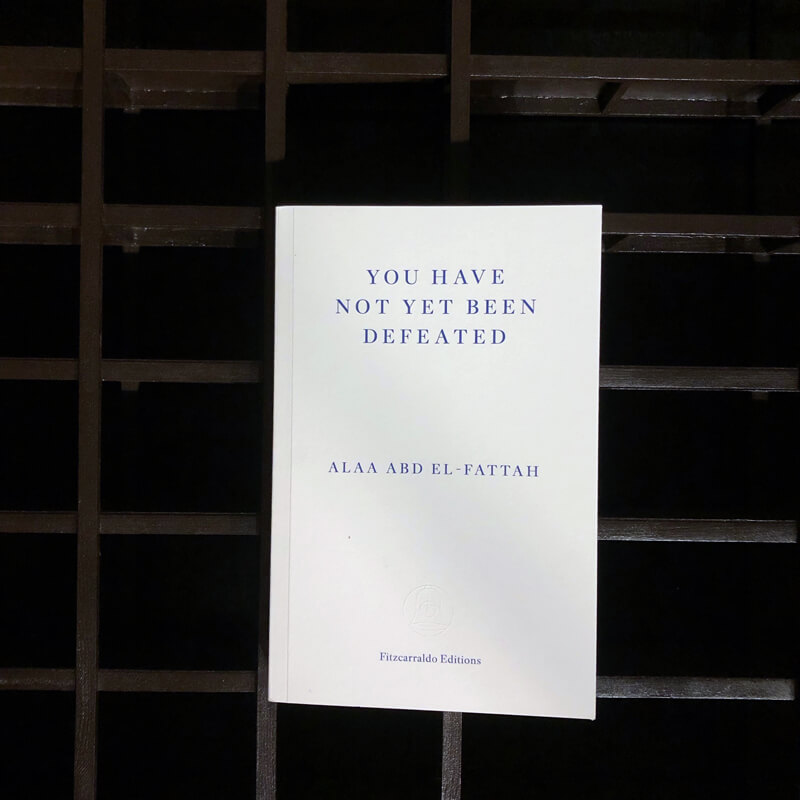
Alaa Abd el-Fattah is arguably the most high-profile political prisoner in Egypt, if not the Arab world, rising to international prominence during the revolution of 2011. A fiercely independent thinker who fuses politics and technology in powerful prose, an activist whose ideas represent a global generation which has only known struggle against a failing system, a public intellectual with the rare courage to offer personal, painful honesty, Alaa’s written voice came to symbolize much of what was fresh, inspiring and revolutionary about the uprisings that have defined the last decade. Collected here for the first time in English are a selection of his essays, social media posts and interviews from 2011 until the present. He has spent the majority of those years in prison, where many of these pieces were written. Together, they present not only a unique account from the frontline of a decade of global upheaval, but a catalogue of ideas about other futures those upheavals could yet reveal. From theories on technology and history to profound reflections on the meaning of prison, You Have Not Yet Been Defeated is a book about the importance of ideas, whatever their cost. ↑ ↓ ↓
€14,00
SOLD OUT
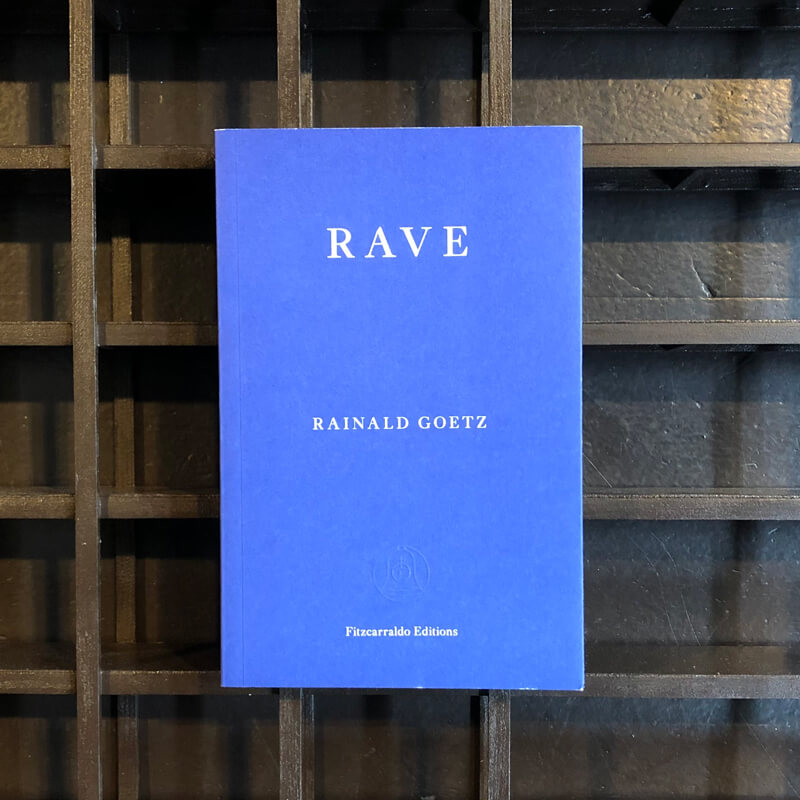
‘Meet girls. Take drugs. Listen to music.’ In Rave, cult German novelist Rainald Goetz takes a headlong dive into nineties techno culture. From the cathartic release on the dance floor to the intense conversations in corners of nightclubs and the after-parties in the light of dawn, this exhilarating, fragmentary novel captures the feeling of debauchery from within. Dazzling and intimate, Rave is an unapologetic embrace of nightlife from an author unafraid to lose himself in the subject of his work. ↑ ↓ ↓
€16,20
SOLD OUT
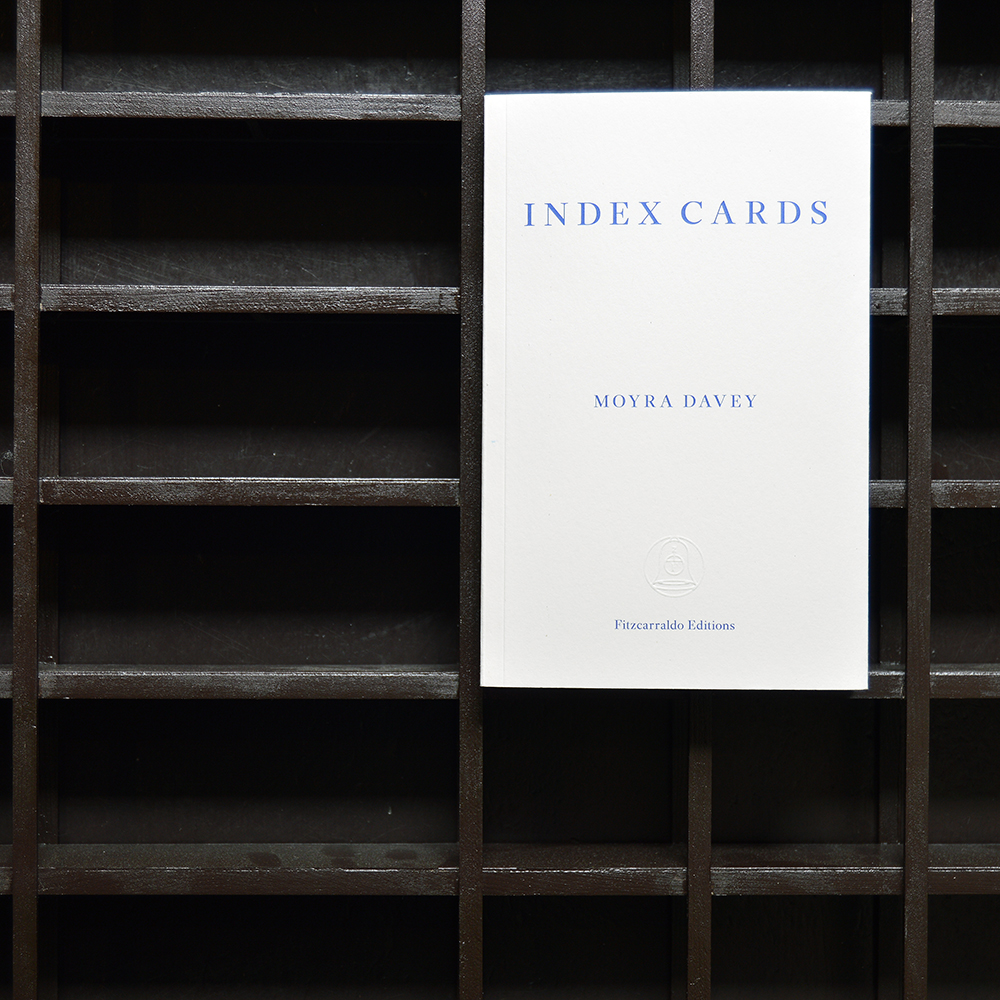
In these essays, the acclaimed artist, photographer, writer, and filmmaker Moyra Davey often begins with a daily encounter - with a photograph, a memory, or a passage from a book - and links that subject to others, drawing fascinating and unlikely connections, until you can almost feel the texture of her thinking. While thinking and writing, she weaves together disparate writers and artists - Mary Wollstonecraft, Jean Genet, Virginia Woolf, Janet Malcolm, Chantal Akerman, and Roland Barthes, among many others - in a way that is both elliptical and direct, clearheaded and personal, prismatic and self-examining, layering narratives to reveal the thorny but nourishing relationship between art and life. ↑ ↓ ↓
€14,00
SOLD OUT
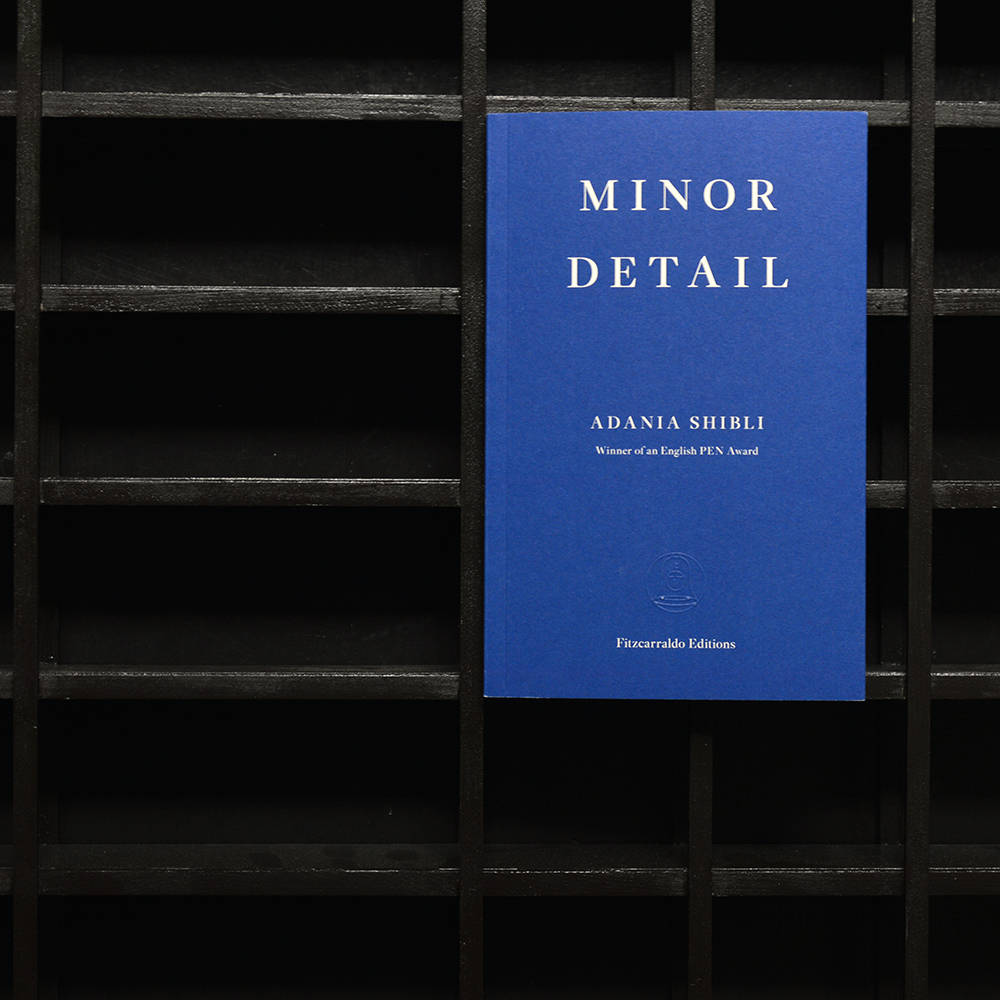
Minor Detail begins during the summer of 1949, one year after the war that the Palestinians mourn as the Nakba – the catastrophe that led to the displacement and expulsion of more than 700,000 people – and the Israelis celebrate as the War of Independence. Israeli soldiers capture and rape a young Palestinian woman, and kill and bury her in the sand. Many years later, a woman in Ramallah becomes fascinated to the point of obsession with this ‘minor detail’ of history. A haunting meditation on war, violence and memory, Minor Detail cuts to the heart of the Palestinian experience of dispossession, life under occupation, and the persistent difficulty of piecing together a narrative in the face of ongoing erasure and disempowerment. ↑ ↓ ↓
€12,00
SOLD OUT
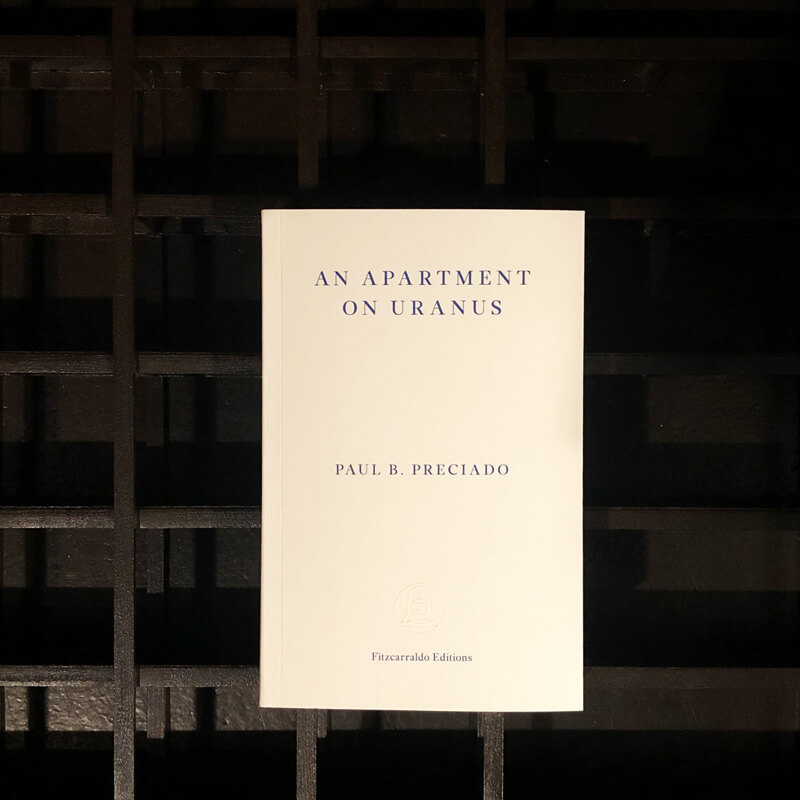
Uranus, the frozen giant, is the coldest planet in the solar system as well as a deity in Greek mythology. It is also the inspiration for uranism, a concept coined by the writer Karl Heinrich Ulrich in 1864 to define the “third sex” and the rights of those who “love differently.” Following Ulrich, Paul B. Preciado dreams of an apartment on Uranus where he might live beyond existing power, gender and racial strictures invented by modernity. “My trans condition is a new form of uranism,” he writes. “I am not a man. I am not a woman. I am not heterosexual. I am not homosexual. I am not bisexual. I am a dissident of the gender-sex binary system. I am the multiplicity of the cosmos trapped in a binary political and epistemological system, shouting in front of you. I am a uranist confined inside the limits of technoscientific capitalism.” This book recounts Preciado's transformation from Beatriz into Paul B., but it is not only an account of gender transitioning. Preciado also considers political, cultural, and sexual transition, reflecting on issues that range from the rise of neo-fascism in Europe to the technological appropriation of the uterus, from the harassment of trans children to the role museums might play in the cultural revolution to come. An Apartment on Uranus is a bold, transgressive, and necessary book. ↑ ↓ ↓
€13,00
SOLD OUT
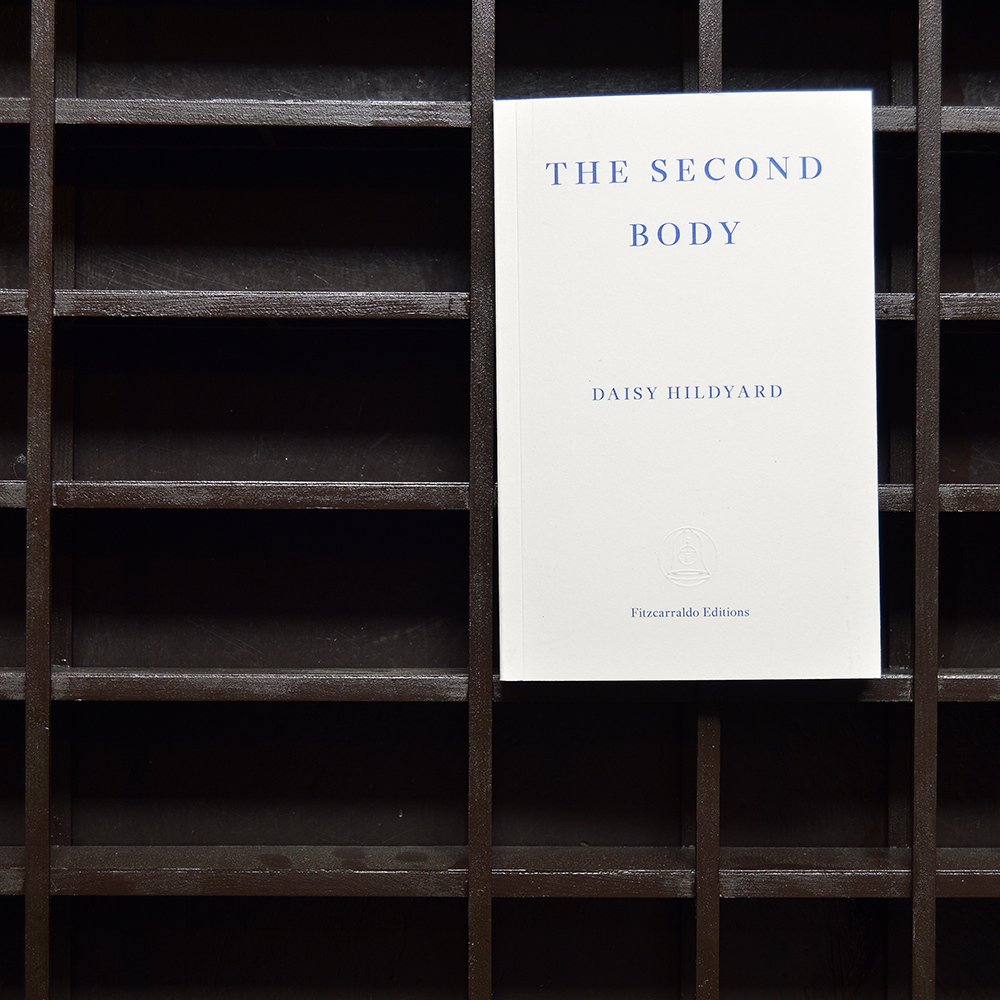
Every living thing has two bodies. To be an animal is to be in possession of a physical body, a body which can eat, drink and sleep; it is also to be embedded in a worldwide network of ecosystems. When every human body has an uncanny global presence, how do we live with ourselves? In this timely and elegant essay, Daisy Hildyard captures the second body by exploring how the human is a part of animal life. She meets Richard, a butcher in Yorkshire, and sees pigs turned into boiled ham; and Gina, an environmental criminologist, who tells her about leopards and silver foxes kept as pets in luxury apartments. She speaks to Luis, a biologist, about the origins of life; and talks to Nadezhda about fungi in an effort to understand how we define animal life. Eventually, her second body comes to visit her first body when the river flooded her home last year. The Second Body is a brilliantly lucid account of the dissolving boundaries between all life on earth. ↑ ↓ ↓
€12,00
SOLD OUT
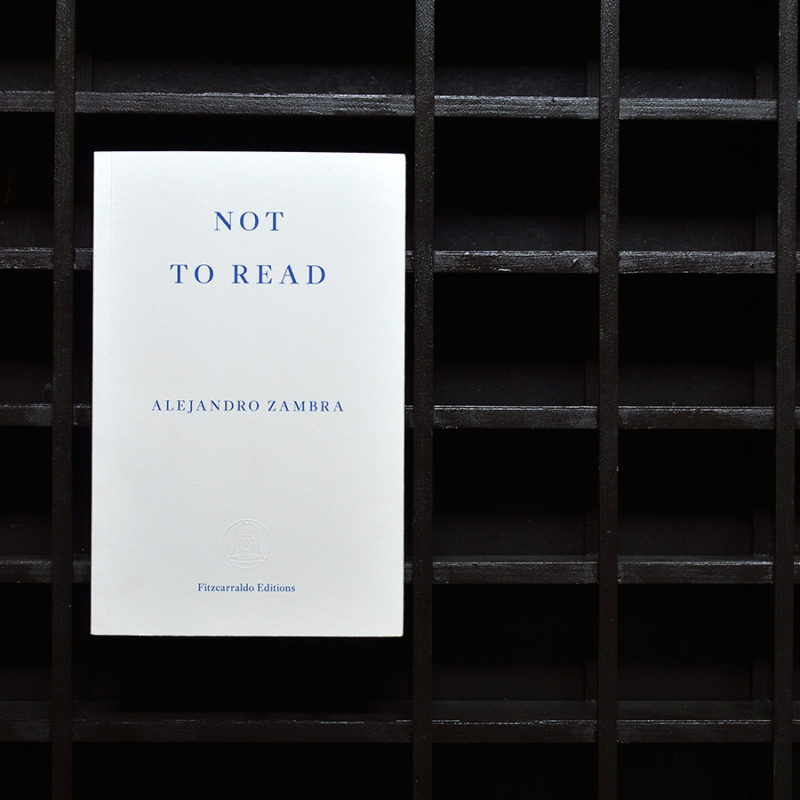
In Not to Read, Alejandro Zambra outlines his own particular theory of reading that also offers a kind of blurry self-portrait, or literary autobiography. Whether writing about Natalia Ginzburg, typewriters and computers, Paul Léautaud, or how to be silent in German, his essays function as a laboratory for his novels, a testing ground for ideas, readings and style. Not to Read also presents an alternative pantheon of Latin American literature – Zambra would rather talk about Nicanor Parra than Pablo Neruda, Mario Levrero than Gabriel García Márquez. His voice is that of a trusted friend telling you about a book or an author he’s excited about, how he reads, and why he writes. A standard-bearer of his generation in Chile, with Not to Read Alejandro Zambra confirms he is one of the most engaging writers of our time. ↑ ↓ ↓
€12,00
SOLD OUT